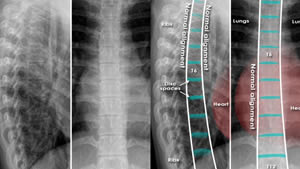Personal Injury law, also known as tort law, involves legal disputes that arise from when one person suffers harm from an accident or injury, and someone else might be legally responsible for that harm. The harm could have been committed intentionally or negligently. It encompasses a wide range of cases, including car accidents, slip and fall accidents, workplace injuries, and product liability.
Personal injury law covers a wide range of cases where individuals suffer harm due to the negligence or intentional actions of others. Here are some common types of personal injury cases we handle:

1. Motor Vehicle Accidents
Motor vehicle accidents include automobiles, motorcycles, trucks, and buses. They also include ride-share services such as Uber and Lyft.

2. Slip and Fall Accidents
Slip and fall accidents occur when someone slips, trips, or falls on someone else’s property due to some conditions.

3. Catastrophic Injuries
Catastrophic personal injury cases involve severe injuries that have a long-term or permanent impact on the victim’s life, often leading to significant physical, emotional, and financial challenges. Our firm covers the following areas:

4. Product Liability
Product Liability cases involve injuries caused by defective or dangerous products. The manufacturer, distributor, or retailer may be held liable for injuries.

5. Workplace Accidents
Workplace accident cases arise when employees are injured on the job.

6. Assault and Battery
Assault and Battery are intentional torts where one person intentionally causes harm to another. They can lead to both criminal charges and civil lawsuits.

7. Wrongful Death
Wrongful death occurs when someone dies due to the negligence or intentional actions of another.

8. Dog Bites
Dog bit cases involve injuries caused by dog attacks.

9. Premises Liability
Premises liability cases involve injuries that occur on someone else’s property due to unsafe conditions.

10. Defamation (Libel and Slander)
Defamation cases involve harm to a person’s reputation due to false statements. Libel refers to written defamation, while Slander refers to spoken defamation.

11. Construction Accidents
Construction accident are injuries that occur on construction sites, which can involve workers, pedestrians, or nearby residents.

12. Nursing Home Abuse
Nursing home abuse cases involve harm to elderly residents of nursing homes due to neglect, abuse, or inadequate care.

13. Pedestrian Accidents
Pedestrian personal injury cases involve incidents where a pedestrian – someone walking on foot – suffers injuries due to the actions or negligence of another party, typically a motor vehicle driver.

14. Sexual Assault
Sexual assault personal injury cases involve civil lawsuits filed by survivors of sexual assault to seek compensation for the physical, emotional, and psychological harm they suffered as a result of the assault. These cases differ from criminal cases.
Key Aspects of Personal Injury Law:
Negligence: Most personal injury cases are based on the legal concept of negligence. To win a personal injury case, the injured party (Plaintiff) must prove that the Defendant (the person or entity being sued) was negligent. This involves showing that the defendant had a duty to act with reasonable care, breached that duty, and caused the injury (or damage) as a result.
Compensation: If the Plaintiff wins the case, they may be awarded compensation, often referred to as “damages.” These can include:
Medical expenses: Costs of medical treatment related to the injury.
Lost Wages: Income lost to the injury.
Pain and suffering: Compensation for physical pain and emotional distress.
Property damage: Costs related to any damaged property.
Liability: Determining who is legally responsible for the injury is a critical part of personal injury law. Liability may be clear-cut in some cases (e.g. a drunk driver causing an accident), while in others, it may involve complex legal arguments.
Statute of Limitations: There is a time limit within which a personal injury lawsuit must be filed, known as the statute of limitations. This varies by jurisdiction and the type of injury.
Settlement vs. Trial: Many personal injury cases are settled out of court through negotiations between the parties. If the settlement cannot be reached, the case may go to trial, where a judge or jury will decide the outcome.
Personal injury law is designed to provide relief for individuals harmed by the actions or negligence of others, and to deter others from committing similar offenses.